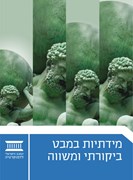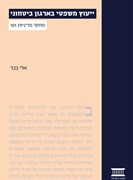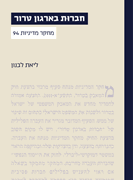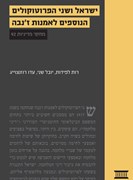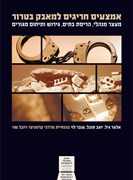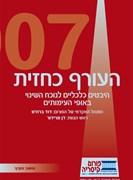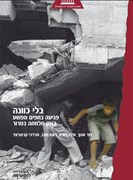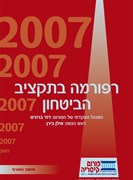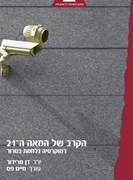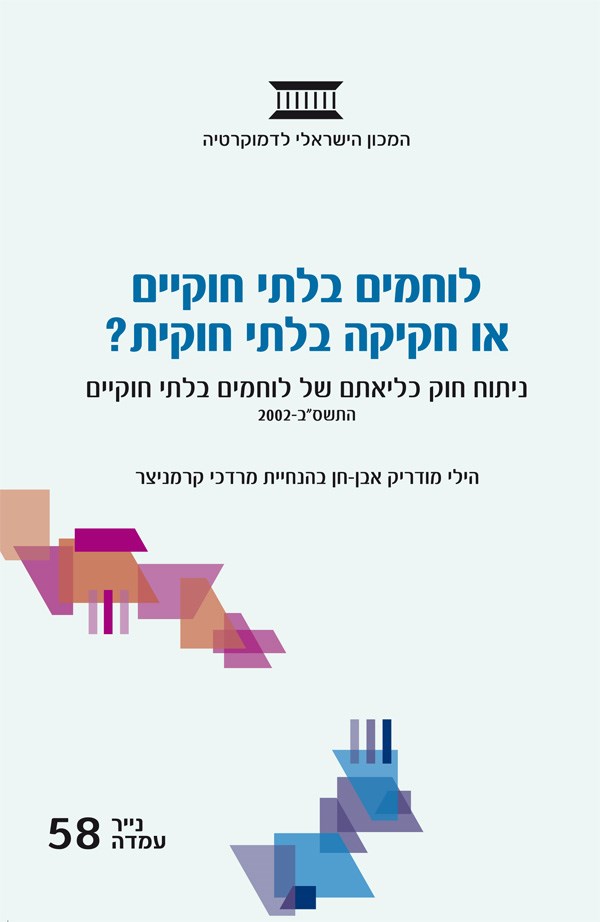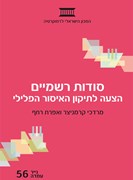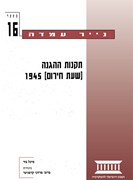

Publications Regarding Security
Articles

12 Necessary Changes for the Government's Conscription Bill (Amendment 26)
Written By: Adv. Shlomit Ravitsky Tur-Paz, Adv. Noa Goshen, Prof. Amichai Cohen
IDI experts argue for a universal obligation to serve, as opposed to the model of the latest "conscription" bill, which would be harmful to Israel's security and social solidarity. However, if the present legislation does move forward, the points presented here would mitigate the harm in the proposed bill.

Even in Times of Crisis, Police Must Be in Command of Civilian Defense Squads
Written By: Adv. Mirit Lavi, Dr. Yael Litmanovitz
The work of civilian defense squads serves a real security need and bolsters the functioning of the police. But an incident from the Israel-Iran war reminds us that, even in an emergency, they are still subject to the law and must still operate within the limits and frameworks set for them by the police.

Chaos in the Courtroom, Clarity on the Bench
Written By: Prof. Suzie Navot
Everything you need to know about yesterday's High Court hearing on Netanyahu's efforts to fire Shin Bet Director Ronen Bar went.

Politicization of the Shin Bet is Dangerous to Israel's Security and the Rights of Israelis
Written By: Dr. Eran Shamir-Borer, Prof. Amichai Cohen
Maintaining the Shin Bet’s independence from political influence is essential to preserving both Israel’s national security and the democratic rights of its citizens.

Explainer: The Prime Minister’s Decision to Pursue the Dismissal of the Head of the Shin Bet
Written By: Prof. Amichai Cohen, Dr. Eran Shamir-Borer
On March 20, 2025, Israel’s government voted in favor of Prime Minister Benjamin Netanyahu’s decision to dismiss Ronen Bar, head of the Shin Bet, citing "growing distrust" in the security chief. The following document answers key legal questions around this announcement.

Does Shin Bet chief Ronen Bar's dismissal endanger Israeli democracy?
Written By: Prof. Amichai Cohen
Prime Minister Netanyahu has informed Israel Security Agency Shin Bet Director Ronen Bar of his decision to fire him. Netanyahu cited his mounting lack of confidence in Bar as grounds for his dismissal. KAN's Mark Weiss spoke about the prime minister’s decision to dismiss Ronen Bar with Prof Amichai Cohen, a Senior Fellow at the Israel Democracy Institute.

The Tasks Awaiting the New Chief of Staff – The Relationship Between the IDF and Israeli Society
Written By: Prof. Amichai Cohen
The incoming Commander-in-Chief of the IDF, Major General Eyal Zamir, faces a number of challenges as he takes up his role beyond the security of Israel. He must integrate the ultra-Orthodox, uphold the IDF's ethical values, and restore public trust in its senior command to preserve the military's identity as the 'people's army.'

The Takeover of Law Enforcement and Security Agencies as a Pivotal Factor in Democratic Decline | A Comparative Analysis
Written By: Dr. Nadav Dagan, Adv. Sapir Paz
Law enforcement and security agencies are central pillars of democratic rule, and therefore, their capture is a pivotal factor in democratic decline. A comparative analysis by IDI experts reveals that this takeover is often achieved quietly while striving to present all steps as lawful.

IDI Survey: Most Jewish Israelis feel safer in a scenario with high number of civilian firearms; most Arabs feel less safe
Written By: Viterbi Family Center for Public Opinion and Policy Research, Center for Security and Democracy
The Center for Security and Democracy and the Viterbi Center for Public Opinion and Policy Research at the Israel and personal security—the present release focuses on internal security; a press release will follow tomorrow focusing on national security.

The Two Coalitions Israel Needs Now
Written By: Yohanan Plesner
It is increasingly clear that Israel’s future depends on the forging of two coalitions. One is a multinational alliance determined to turn the Palestinian issue from a driver of conflict into an engine of peace. The other, is an internal Israeli coalition ready to pursue a series of bold social, economic, and political reforms.

The Security Cabinet Should Play a Greater Role in Determining Hostage Negotiations
Written By: Prof. Amichai Cohen, Adv. Mirit Lavi
The Prime Minister’s decision to retain the power to determine the parameters and scope of the hostage deal as a “policy issue” disregards the implications such a deal has on security issues. Israeli history underscores the importance of convening the security cabinet and upholding the appropriate democratic channels in times of war.

Haredi Yeshiva Students Are Being Called to IDF Enlistment Centers. What’s Next?
Written By: Adv. Shlomit Ravitsky Tur-Paz, Dr. Eran Shamir-Borer, Adv. Mirit Lavi
On Monday August 5, 2024 and Tuesday August 6, 2024—900 ultra-Orthodox yeshiva students were required to present themselves at IDF enlistment centers. Shlomit Ravitsky Tur-Paz, Dr. Eran Shamir-Borer and Mirit Lavi explain the next steps the IDF will need to take in order to enforce the legal obligation of conscription.

Advisory Opinion of the International Court of Justice on the Legal Consequences of Israel's Policies and Practices in the "Occupied Palestinian Territory"
Written By: Dr. Eran Shamir-Borer, Adv. Mirit Lavi
An in-depth analysis of the advisory opinion of the ICJ on the legal consequences of Israel's policies and practices in the 'occupied Palestinian territory.'

Investigating Allegations of Detainee Abuse is Israel’s Moral and Legal Duty - And a Diplomatic Necessity
Written By: Prof. Amichai Cohen, Dr. Eran Shamir-Borer
Investigating allegations of abuse at the Sde Teiman detention facility is Israel's moral and legal duty as a rule-based democracy and protects the country on the international legal and diplomatic front.
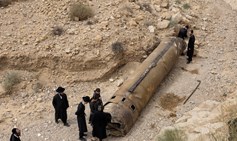
Iran’s Attack Sets a Dangerous Precedent
Written By: Dr. Jesse Ferris
The Iranian missile attack on April 13th set a very dangerous precedent for the future. Had one of the few missiles that managed to penetrate Israel's air-defense shield been fitted with a nuclear warhead, the outcome would have been devastating. This is why the phenomenal achievement of the Israeli Air Force and its allies on Saturday night must not blind us to the danger ahead.
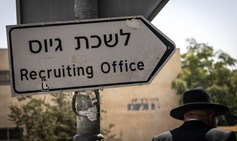
Military Service Law and Reserve Service Law Amendments (extension of mandatory and reserve service period): Professional Opinion
Written By: Yohanan Plesner , Dr. Eran Shamir-Borer, Prof. Amichai Cohen
The government wishes to amend the Military Service Law and Reserve Service Law due to the new security circumstances arising from the outbreak of the war in Gaza. While recognizing the immediate imperative to respond to IDF's personnel needs, we oppose these legislative proposals.
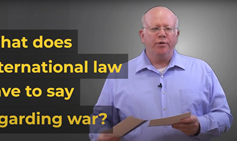
International Law and the War in Gaza
Written By: Prof. Amichai Cohen
IDI's Prof. Amichai Cohen answers a series of questions on international law and its dealings with the laws of war.
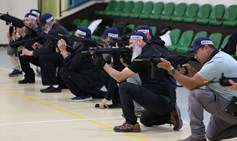
Explainer: Civilian Defense Squads in Urban Settings
Written By: Adv. Mirit Lavi, Dr. Yael Litmanovitz
In recent weeks, since the outbreak of the war in Gaza, some 800 new civilian defense squads have been set up throughout Israel. Each squad consists of local residents who serve as civilian operational reserve forces, available for rapid deployment to assist national security forces during security events and emergency situations.
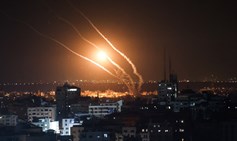
Launching a Military Operation in Gaza without Approval by the Security Cabinet Is Playing with Fire
Written By: Dr. Eran Shamir-Borer
The latest military action in the Gaza Strip was authorized only by the Prime Minister and the Defense Minister, without the prior approval of the Security Cabinet. Israeli decision-makers must ask themselves if this is really the way matters of war and peace should be decided in a democracy.
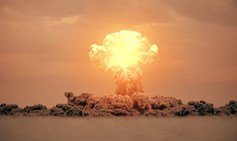
Ukraine and Our Nuclear Future
Written By: Dr. Jesse Ferris
In the decades since the end of the Cold War, regional nuclear powers are adopting strategic doctrines that revolve around the first use of nuclear weapons. This should be particularly worrying for Middle Easterners contemplating their own nuclear future.

Before the Next Round: Establishing Sound Procedures for National Security Decisions
Written By: Prof. Amichai Cohen
Operation Breaking Dawn was brief and successful, nevertheless the decision-making process for matters of national security must be reformed to deal also with worst-case scenarios

Women’s Service in the IDF: Between a ‘People’s Army’ and Gender Equality
Written By: Dr. Idit Shafran Gittleman
Over the years and especially in recent decades, the concept of gender equality has also become relevant to the discussion of military service, and more and more roles have been opened up to women serving in the IDF. Dr. Idit Shafran Gittleman presents an overview of women in the IDF since its establishment.

Does Iran pose an existential threat? Israeli Voice Index November 2021
Written By: Prof. Tamar Hermann, Dr. Or Anabi
62% of Israeli Jews think that Iran poses an existential threat and 58% would support an attack on Iran’s nuclear facilities also without American consent
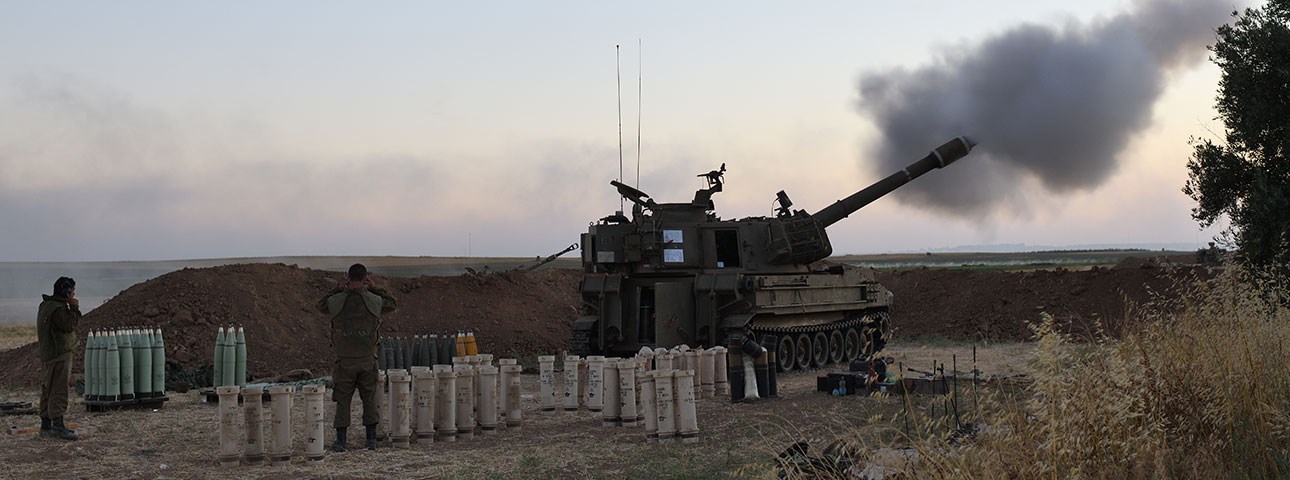
Americans Split on Military Aid to Israel, Say Political Status Quo Unacceptable
Written By: Dina Smeltz, Senior Fellow for Public Opinion and Foreign Policy, Emily Sullivan, Research Assistant, Prof. Tamar Hermann
Both the US and Israel enter new eras of leadership - how does the public view the future of US-Israel relations against the background of the the conflict with the Palestinians
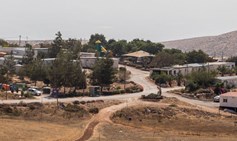
When the Supreme Court Struck Down the Regularization Law
Written By: Prof. Amichai Cohen
Israeli's Supreme Court ruling on the Regularization Law touches on the heart of the legal battle inherent in the power struggle between settlers and Palestinians.

Improving Israel's Security and Resilience
Written By: Prof. Amichai Cohen
After three contentious election campaigns Israel's new government has been sworn in. IDI's experts weigh-in with their recommendations on the most important issues on the agenda. Prof. Amichai Cohen writes about the matters that should be at the top of the agenda to improve Israel's security and resilience.

"Deal of the Century" and Annexation - Overview
Written By: Prof. Amichai Cohen
The “Deal of the Century” and Human Rights: An overview of territorial exchanges and the status of the Palestinians in the annexed Areas
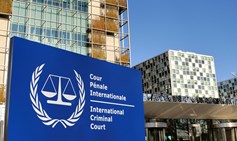
Developments in the Investigation Launched at the ICC in The Hague
Written By: Colonel (Res.) Dr. Liron A. Libman
On January 21st, the ICC’s pre-trial court decided to reject the prosecutor’s request to allow her to submit a petition - on technical grounds. So what's next?

Majority of Israelis Think that Israel is Prepared for War
Written By: Prof. Tamar Hermann, Dr. Or Anabi
A majority of Israelis gave high grades when assessing Israel’s preparedness for war in three areas: the IDF’s combat readiness, the resilience of the population on the home front, and the political echelon’s decision-making ability concerning the objectives and management of the war. At the same time, Israelis do not think highly of the preparedness of the home front regarding protection of civilian facilities.
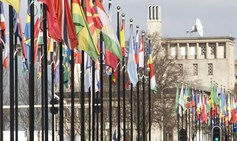
ICC in The Hague - Investigation Against Israel: Explainer
Written By: Prof. Yuval Shany, Colonel (Res.) Dr. Liron A. Libman
Everything you wanted to know about the International Criminal Court in The Hague and its decision to open an investigation against Israel for war crimes

MK Liberman: " If third elections are held the outcome will be different"
MK Avigdor Liberman at IDI Annual Conference on Security and Democracy: "I fully trust the security forces know how to deal with threats in a professional manner uninfluenced by outside biases"
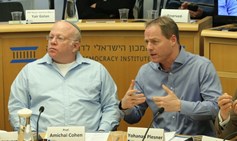
Preserving the Value of the "People's Army"
Yohanan Plesner opened the annual Security and Democracy conference saying: "Our challenge is to preserve the value of mamlahtiut (stateliness) in the 'people's army', especially in a polarized country like Israel."
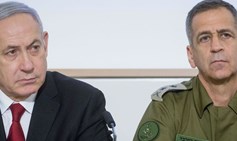
Who is Authorized to Decide on Military Actions that May Spark a Wider Conflict?
Written By: Colonel (Res.) Dr. Liron A. Libman
There is a vagueness about the authority to make fateful decisions for the country, including what even counts as war.
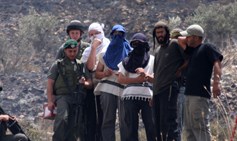
The Golem Turns on its Creator
Written By: Yair Sheleg
As a rule, it is not just their extremist ideology that has sent them to camp on the hilltops, but also the alternative they have chosen to replace the staid, bourgeois life they left behind.
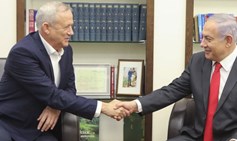
Majority of Israelis Support their Parties Joining a Blue and White Coalition
Written By: Prof. Tamar Hermann, Dr. Or Anabi
October 2019 Israeli Voice Index revealed a decline in Israelis’ assessment of President Trump’s commitment to Israel’s security. The survey also found that 62% of Israelis support the parties they voted for in the last elections joining a Blue and White led coalition.

A Mutual Defense Treaty With the United States—A Complicated Proposition for Israel
Written By: Colonel (Res.) Dr. Liron A. Libman
Supporters and opponents argue the pros and cons of such a deal but instead of asking whether a mutual defense treaty would be good or bad for Israel, it would be better to focus on the specific elements of such a treaty.
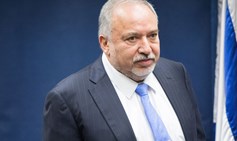
Two Weeks to Election Day: IDI Poll Reveals Jewish Israelis are in Favor of a Unity Government
Written By: Prof. Tamar Hermann, Dr. Or Anabi
The August 2019 Israeli Voice Index found that Jewish Israelis show a strong preference for a unity government while Arab Israelis prefer a center-left wing government led by Gantz and that over the past five months there has been a steady decline in the public’s optimism about the future of Israel’s democracy and security
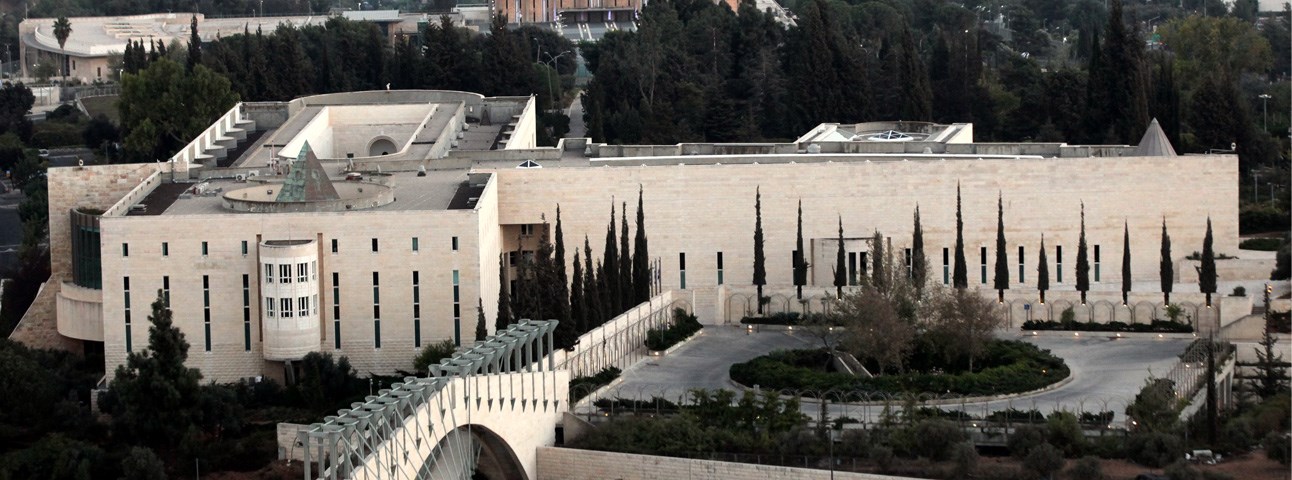
The Supreme Court Doesn't "Tie Hands"
Written By: Dr. Amir Fuchs
On claims that the High Court ties the security establishment's hands, Dr. Amir Fuchs says "the truth is that when authoritative figures from the defense establishment appear before the court to support some important security requirement, the court almost always adopts their argument".

Supreme Court Decision of Combatants for Peace v. Minister of Defense
Written By: Dr. Idit Shafran Gittleman, Tamar Hostovsky Brandes
A controversial decision delivered by the Supreme Court on May 2 could be an important test case for its ability to withstand political attacks, which call to curb the court’s authority and power

Is Limiting the Gaza Fishing Zone Collective Punishment?
Written By: Colonel (Res.) Dr. Liron A. Libman
Against the backdrop of the armed conflict between Israel and the Hamas - is limiting the space available for fishing near Gaza's shores collective punishment?
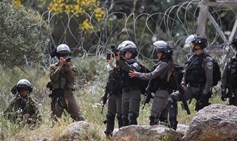
Study Reveals: Proportionality in War Still a Riddle
Written By: Prof. Amichai Cohen, Prof. Raanan Sultizeanu-Kenan, Prof. Daniel Statman, By: Arieh O'Sullivan
Israeli military officers are less tolerant of higher civilian casualties than their American counterparts.
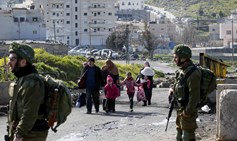
Legal Ramifications if Israel Decided to Annex the West Bank
Written By: Prof. Yuval Shany
Annexation would result in a continuous state of affairs in which two sets of laws apply to two adjacent populations and would undermine Israel’s democracy

Israel at 71
Written By: Dr. William Cubbison
On May 9th Israel will celebrate Independence Day, the 71st anniversary of the founding of the State of Israel. What do Israelis think about the state of the country at the age of 71?

Israeli Voice Index: 82% of Israelis Are Proud of Country’s Achievements
Written By: Prof. Tamar Hermann, Dr. Or Anabi
On the eve of Israel’s 71st Independence Day, 82% of the Israeli public thinks that the national balance of achievements shows more successes than failures and 62% think legal proceedings against Prime Minister Netanyahu should not be stopped, notwithstanding his success in the elections
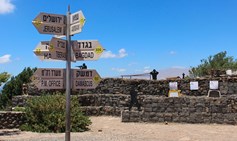
What Do Israelis Think About the Golan Heights?
Written By: Dr. William Cubbison
Due to security concerns - the majority of Israelis, over the past four decades have consistently opposed the idea of returning the Golan Heights to Syrian control. The article presents a historical overview of Israeli public opinion

The Hackers Are Coming, the Hackers Are Coming
Written By: Adv. Eli Bahar, Adv. Ron Shamir
Iran has apparently hacked the cellphone of Benny Gantz, Prime Minister Netanyahu's main challenger in the April 9 elections. But despite serving as a tool in Likud's campaign, it has not derailed the democratic process in any significant way. In this conversation Eli Bahar, former legal adviser to Shin Bet and IDI fellow, and Ron Shamir, the former head of the technology division at Shin Bet and a fellow at the Hebrew University's Federman Cybersecurity Center, discuss with Tel Aviv Review's Gilad Halpern the danger posed by potential cyber-attacks on Israeli democracy

Democracy in Danger: Foreign Intervention in Israel’s Elections via Cyber-Attacks
Written By: Adv. Eli Bahar, Ron Shamir
Eli Bahar and Ron Shamir examine the threats posed by foreign intervention (in its broadest sense) in Israel’s Knesset elections—by means of Cyber-attacks, whether at the state or sub-state level
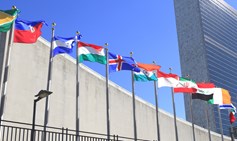
UN Commission Report on Gaza – Response
Written By: Prof. Yuval Shany, Colonel (Res.) Dr. Liron A. Libman, Prof. Amichai Cohen
The report and its conclusions, regardless of whether or not they will be acceptable to the State of Israel, once again highlight the importance of the rule of law, and bring to the fore the need for in-depth investigations of events which might be construed as in violation of international law

House Demolition at the Israeli Supreme Court: Recent Developments
Written By: Prof. Yuval Shany, Prof. Amichai Cohen
In its fight against terrorism, Israel has often been proud of its ability to effectively fight terrorism, while remaining faithful to democratic principles. House demolitions were always considered a necessary evil, which could be resorted to in very exceptional circumstances - are we now facing populist trends that runs contrary to the traditional ethos of subjecting counterterrorism policies to rule-of-law constraints.

Elections, Security and the Next Government
Written By: Prof. Tamar Hermann, Prof. Ephraim Yaar
The majority of Israelis think that Trump’s decision to withdraw from Syria harms Israel’s security and want a right or center-right government. Read more in the latest Peace Index.
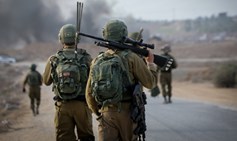
The Role of Politicians and the Role of Attorneys
Written By: Colonel (Res.) Dr. Liron A. Libman
For Israel, coping with the situation in the Gaza Strip is far from simple. The way the situation is handled has security, economic, humanitarian, and political implications. Therefore leadership must act and speak responsibly - this is not always the case.
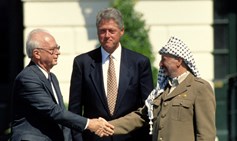
Two States for Two People? A Long Decline in Support
Written By: Dr. William Cubbison
For the past few decades, support and opposition to a two state solution has been a fault line dividing people and parties in Israel. Dr. William Cubbison presents an overview of the level of Jewish support in the 25 years since the signing of the Oslo Accords.

Is It a Very Scary Time for Young Men?
Written By: Prof. Tamar Hermann, Prof. Ephraim Yaar
The monthly Peace Index of the Israel Democracy Institute and Tel Aviv University finds that: 44% of Jewish and Arab Israelis agree with President Trump’s statement that “It’s a very scary time for young men” – the percentage among men who agreed was significantly higher than that among women.
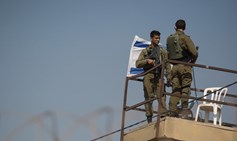
‘Black Friday’ and Other Investigations: Initial Observations
Written By: Prof. Amichai Cohen, Prof. Yuval Shany
Initial observations on Israeli's Military Advocate General's decision to conclude investigation into 'Black Friday'.

If Meitav's Website Was Hacked - the Breach Was Almost Inevitable
Written By: Dr. Tehilla Shwartz Altshuler
The breach of IDF’s Meitav website was almost inevitable, in light of inadequate attention to the need to protect sensitive personal information and the lack of supporting legislation in Israel.
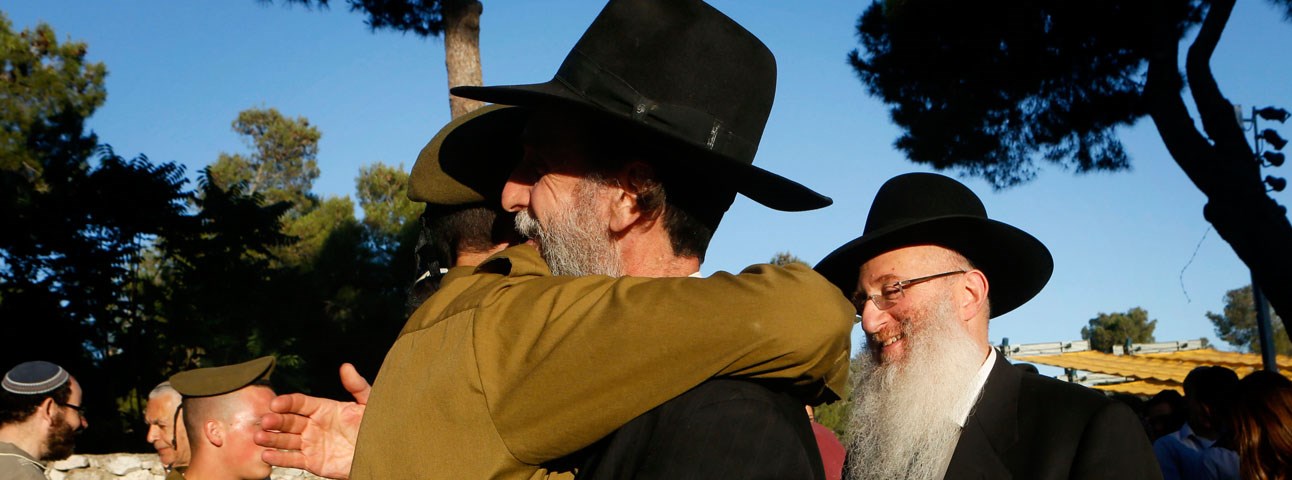
Israel needs a draft law that will uphold the principle of civic equality
Written By: Yohanan Plesner
Now is the time to rise above petty politics and pass a draft law that will uphold the principle of civic equality in Israel.

Israel's wealthiest are abandoning IDF combat units
Written By: Dr. Asaf Malchi
Israel's secular elite has lost its enthusiasm for combat service and now targets intelligence units, such as Unit 8200.
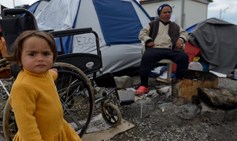
The Majority of Israelis Favor Providing Syrian Victims of War with Humanitarian Aid
Written By: Prof. Tamar Hermann, Prof. Ephraim Yaar
On the northern front: the majority of Israelis favor providing Syrian victims of war with medical aid and food. On the southern front: the majority of Israelis support a military operation if Hamas violates the ceasefire.
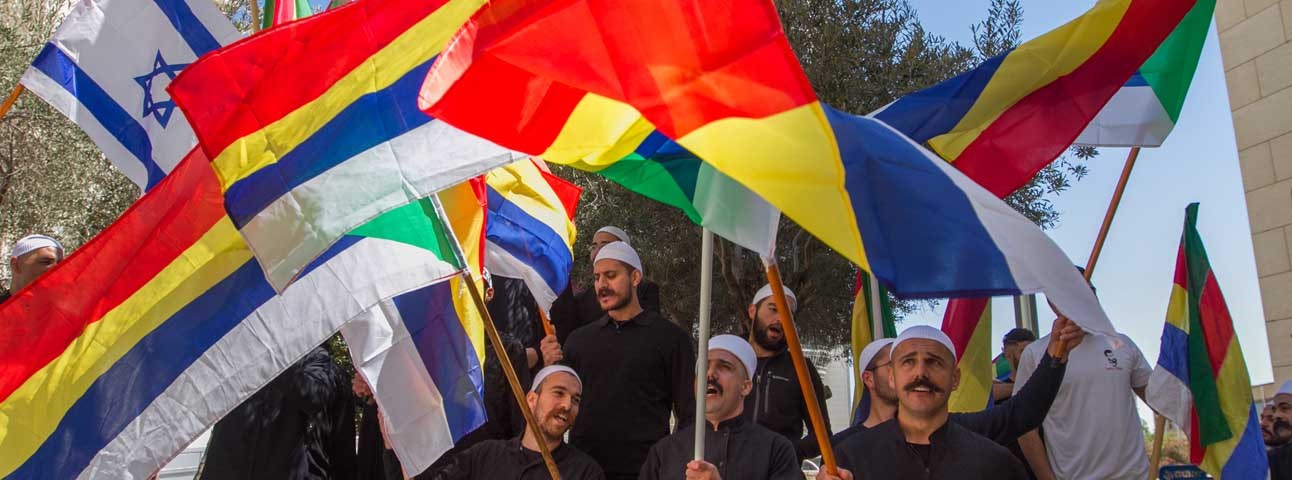
60% of Israelis Think the New Nation-State Law Should Have Included ‘Equality'
Written By: Prof. Tamar Hermann, Prof. Ephraim Yaar
The monthly Peace Index of the Israel Democracy Institute and Tel Aviv University, published today, finds that: only 52% of Jewish Israelis think it was important to pass the Nation-State law at this time.

Can an Ex-Senior IDF Lawyer Transform Administrative Detention?
Written By: Colonel (Res.) Dr. Liron A. Libman
"Even a bit more justice than now is better" said Liron Libman in an interview on administrative detention.

The Facebook Bill Must Be Amended so that it Can Serve Its Original Purpose
Written By: Dr. Tehilla Shwartz Altshuler
The Israel Democracy Institute applauds Prime Minister Netanyahu’s decision to reevaluate the Facebook Law which was initially formulated to help fight terrorism, but evolved into a draconian law that could set back the Start-Up Nation decades in terms of freedom of speech.
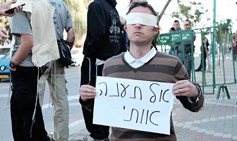
‘Special Interrogations,’ Confessions and the Duma Arson Attack
Written By: Prof. Yuval Shany, Prof. Mordechai Kremnitzer
The Lod district court decision illustrates the possible dangers to criminal defendant’s human rights though the expanding defense of necessity and the lack of separation between the preventive and criminal phases of the investigation.
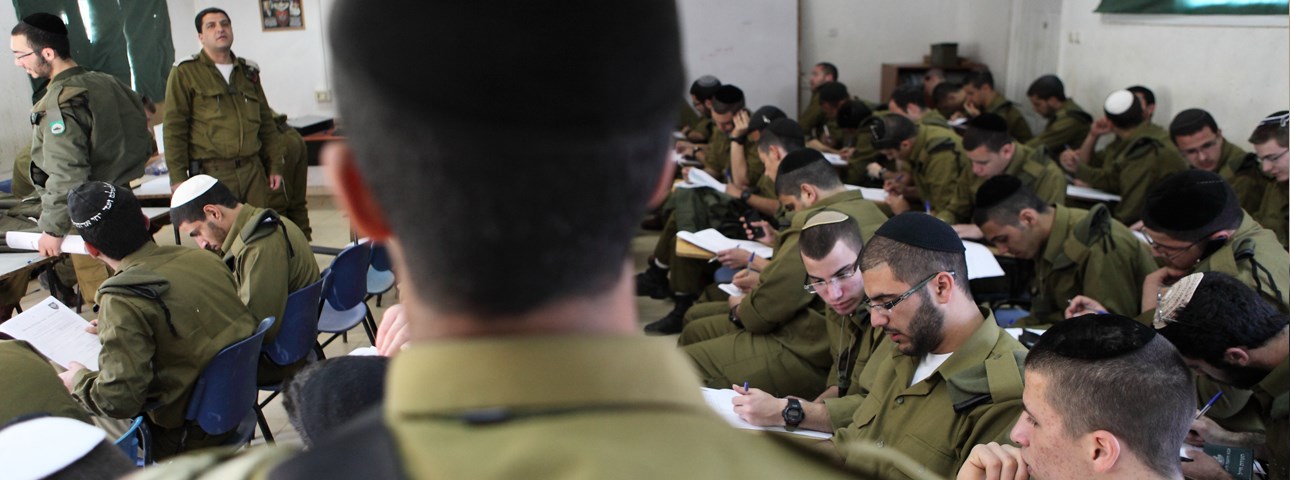
Proposal for Amending Ultra-Orthodox Conscription Plan
Written By: Yohanan Plesner , Prof. Amichai Cohen, Dr. Gilad Malach
IDI puts forth analysis of why the proposed conscription plan for the ultra-Orthodox is problematic and offers an alternative approach
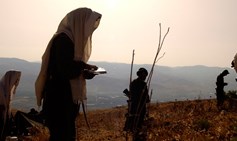
A Kosher Military
Written By: Yohanan Plesner
Yohanan Plesner discusses with Tipping Point the "People's Army". Can a compromise be reached and is "sharing the burden" of military service a realistic goal?
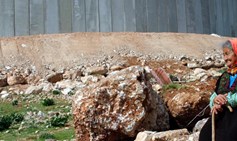
In Israeli Residency Case, Individual Responsibility vs. Collective Punishment
Written By: Colonel (Res.) Dr. Liron A. Libman
While collective harm may be justified in some circumstances, collective punishment should never be allowed: one person’s rights should not be taken hostage to influence the behavior of others.

Will Trump’s Peace Plan Gain Traction?
Written By: Prof. Tamar Hermann, Prof. Ephraim Yaar
The monthly Peace Index of the Israel Democracy Institute and Tel Aviv University, published today, finds that most Israelis think that Trump’s peace plan won’t gain traction and that the IDF should directly target ‘terror kite’ assailants.

The Conscription Plan: Taking the Easy Route to Inequality
Written By: Dr. Gilad Malach
Though many ultra-Orthodox politicians expressed outrage at the original publishing of this new bill, some view the proposal as a double achievement.
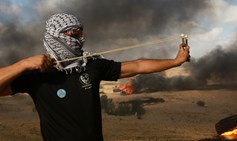
Clarifying the IDF’s Record During the Gaza Riots
Written By: Yohanan Plesner
Israel’s supporters, who have the nation’s best interests at heart, should resist the urge to engage in partisan smear campaigns that attempt to tarnish the reputations of patriots who are on the frontlines of the struggle for Israel’s legitimacy as a Jewish and democratic state. We have enough enemies on our borders.

Private Eyes: Data, Metadata and Civil Rights
Written By: Prof. Yuval Shany, Gilad Halpern, Dr. Dahlia Scheindlin
Professor Yuval Shany discusses the seeming dissonance between Israel's advanced surveillance technology, the minimal restrictions on using it, and a citizenry that hardly cares– and why all this might have to change
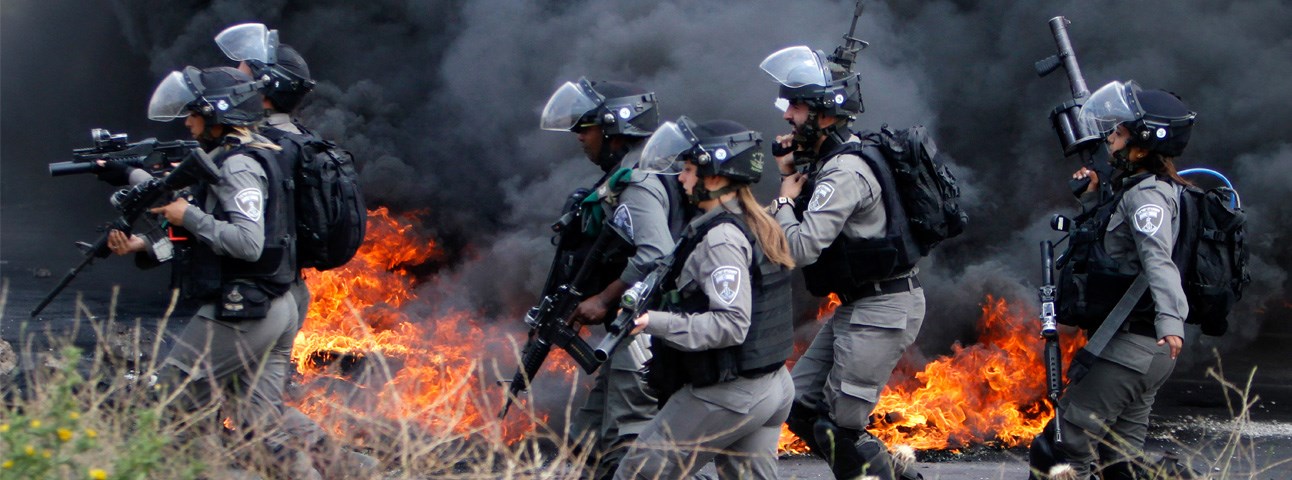
Will Israel go to war in the coming months?
Written By: Prof. Tamar Hermann, Prof. Ephraim Yaar
The monthly Peace Index of the Israel Democracy Institute and Tel Aviv University, published today, finds that the Israeli public split on prospect of war in the coming months

Analysis of Israel’s Supreme Court Decision Allowing Lethal Force in Gaza
Written By: Prof. Amichai Cohen
The case of Yesh Din vs. The Chief of the General Staff HCJ 3003/18
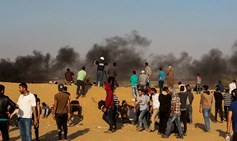
Supreme Court Dismisses a Petition Against Gaza Rules of Engagement
Written By: Prof. Yuval Shany, Elena Chachko
The Supreme Court of Israel recently dismissed a petition against the rules of engagement governing use of force by the Israeli security forces in the violent clashes in Gaza

Is Israel Justified In Shooting Protestors At Its Border?
Written By: Prof. Yuval Shany
Beyond the important political, humanitarian and moral issues raised by the “Great Return March” and the IDF’s response, complicated legal issues also present themselves.

A People’s Army Amidst Social Change
Written By: Arie O'Sullivan, Prof. Yuval Shany, Prof. Amichai Cohen,
Despite the transformation of Israeli society, the IDF’s model of service has not changed. Military service continues to be a rite of passage for young Israelis and the IDF retains its status as the most trusted institution in Israel. Prof. Yuval Shany, Maj.-Gen. (ret.) Orna Barbivai and Prof. Amichai Cohen sit down to discuss the challenges facing the IDF and Israeli society in a changing security environment.
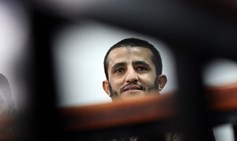
Knesset Considers Changing Law to Apply Death Penalty to Convicted Terrorists
Written By: Colonel (Res.) Dr. Liron A. Libman
A recent Knesset bill that would introduce the death sentence for terror-related murder in Israel has broken the decades of relative silence on the matter.

Women in the Military
Written By: Prof. Yedidia Z. Stern
Prof. Yedidia Stern: "These rabbis, who loudly extol the virtues of Jewish statehood, do not hesitate to drag the people’s army into the arena of conflict with their irresponsible statements."

Will an Amendment to Israel's National Security Law Change the Rules of the Game?
Written By: Prof. Amichai Cohen
In the US and more recently in Israel there is public discussion over the principled issues of the balance between the different branches of government in matters of national security and the proper mechanism to create accountability in these matters are universal.
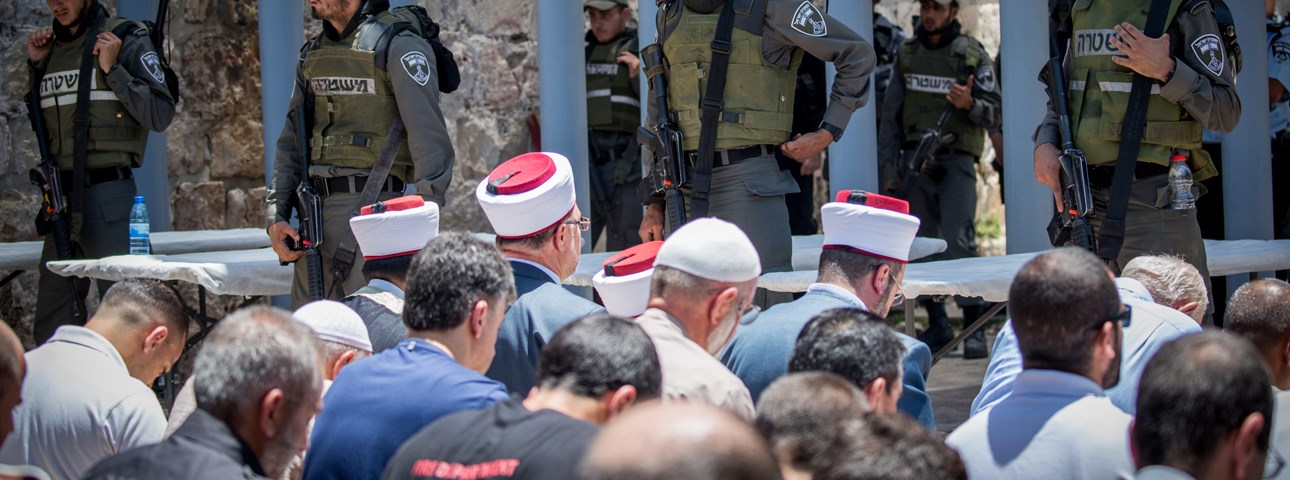
Survey: 56% of Jews Think Most Arab Citizens Support Temple Mount Attack
Monthly Peace Index also finds that 65% of Israelis do not trust Prime Minister Benjamin Netanyahu's handling of the crisis on Temple Mount.

And What If He Was Your Son?
Written By: Dr. Idit Shafran Gittleman
In a poignant op-ed, published by the Jewish Journal, Dr. Idit Shafran Gittleman confronts the issue of the price a country should pay to bring home its captive soldiers, including those who have been declared dead.

Two Surprising Lessons of the Six-Day War
Written By: Dr. Jesse Ferris
Basics such as bread and cooking oil began to disappear from the shelves. The Egyptian street boiled with anger. And the foundations of the regime began to shake.

Under the Radar Screen?
Written By: Prof. Yuval Shany, Adv. Amir Cahane
Israel's security agencies have sweeping surveillance powers, but are subjected to few checks and balances.

The Hebron Shooter is not Israel’s Poster Child
Written By: Idit Shafran, Gittleman, Admiral (Res.) Amichay (Ami) Ayalon
In this op-ed IDI's Amichay Ayalon and Idit Shafran-Gittleman argue that the challenge of combatting terrorism requires security concerns to be weighed against the values of a free society. The prevailing attitude among supporters of Hebron shooter Elor Azaria of allowing the security mantra to trump any other concerns may lead to short-term military success, but will be a moral loss for Israel, both on the home front and in the international sphere. This op-ed originally appeared in Haaretz.

Peace Index: 62% of Israelis Predict Clinton Will Win U.S. Election
Sixty-two percent of Israelis expect Democratic candidate Hillary Clinton to win the U.S. election, according to the latest Peace Index, published Wednesday by the Israel Democracy Institute and Tel Aviv University.

Could Profiling Prevent Another Orlando Shooting?
Written By: Story Hinckley
Often missed in the civil liberties debate over profiling is evidence that shows it is not effective. But proponents point to Israel, whose airport screening has kept it free of attacks since 1972.

Plesner: 'Political Echelon has Obligation to Support IDF Senior Commanders'
IDI President speaks out after heated conversation between Prime Minister Benjamin Netanyahu and Defense Minister Moshe Ya'alon goes public.

The Winning Strategy
Victory in today’s open-ended asymmetric wars is not obtained just on the military front, but must also take into account international legitimization, media perceptions and national resilience, say Ami Ayalon and Eli Bahar of IDI’s Center for National Security and Democracy.
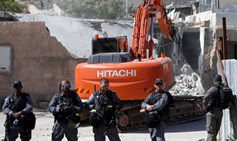
Time for Home Demolitions to be Tested by the Supreme Court
Written By: Adv. Tal Mimran, Nadiv Mordechay
Are home demolitions legal? And are they effective? Both IDF commanders and Israeli Supreme Court judges have raised doubts on the matter. In an op-ed published by The Jerusalem Post, IDI's Tal Mimran says the time has come to reevaluate Israeli policy.

IDI Scholars on the Terrorist Death Penalty Bill:
Ahead Sunday's vote in the Ministerial Committee on Legislation on whether or not the death penalty should be used against terrorists, two IDI scholars are calling on ministers to oppose the legislation.

High Court Seems to Think That Only Arabs Need Deterrence
Written By: Dr. Amir Fuchs
The Israeli High Court's claim that home demolitions need not be applied to Jews because they support terror less than Palestinians must be rejected. (This article was originally published by Haaretz.)
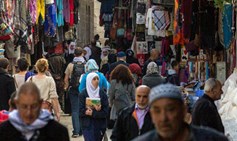
How Not to Achieve Coexistence
Written By: Dr. Sami Miaari
Arab elected officials have disappointed the public time after time with their lack of professionalism in how they lead their constituents toward political change. (This article was originally published by the Jerusalem Post.)

What this war is about and how it will end
Written By: Admiral (Res.) Amichay (Ami) Ayalon
Parallel to negotiations, a process, designed to create a two-state reality through independent and unconditional steps, must be implemented

Prof. Amichai Cohen Warns about International Intervention in Israeli Investigation of Operation Protective Edge
Upon the release of the findings of the international investigation of Operation Protective Edge: IDI warns that the intervention by international bodies in the investigation of the events of the Operation in Gaza undermines the basis of the international demand to establish investigative mechanisms and weakens the Israeli legal system.
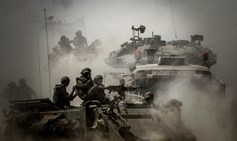
IDI Submission to the UN's International Commission of Inquiry on the 2014 Gaza Conflict
Written By: Prof. Amichai Cohen
Submitted to the UN International Commission of Inquiry on February 11, 2015, this document details the role of lawyers within the Israeli Defense Forces in implementing and enforcing International Humanitarian Law within the IDF.

A Betrayal of International Law
Written By: Prof. Mordechai Kremnitzer
In a Jerusalem Post op-ed, Prof. Mordechai Kremnitzer argues that by breaching their responsibility to be impartial, the UN Human Rights Council and its commission for investigating alleged war crimes in Gaza are betraying international law, even if unintentionally.
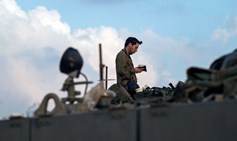
The IDF: Army of the People or Army of God?
Written By: Prof. Mordechai Kremnitzer
IDI Vice President Prof. Mordechai Kremnitzer addresses the question of the appropriateness of the letter that Givati Brigade commander Col.Ofer Winter sent to his subordinate officers as Israel prepared for the ground incursion in Gaza in the summer of 2014.

Mourning for Gazan Children Isn't Left-Wing
Written By: Prof. Mordechai Kremnitzer
IDI Vice President Prof. Mordechai Kremnitzer discusses the High Court of Justice's decision to uphold the Israel Broadcasting Authority's rejection of an infomercial in which the names of Gazan children who were killed in Operation Protective Edge would have been read aloud.
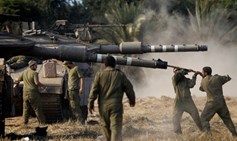
Investigating Allegations of Violations of the Laws of War by the IDF during Operation Protective Edge: The Alternatives Available to Israel
Written By: Prof. Yuval Shany, Prof. Amichai Cohen
How should suspected violations of the international laws of war be investigated? As Operation Protective Edge winds down, Prof. Yuval Shany and Prof. Amichai Cohen discuss the options of an internal investigation by the IDF, an international investigation, and an Israeli commission of inquiry.

Investigating Allegations of Violations of the Laws of War by the IDF during Operation Protective Edge: The Alternatives Available to Israel
Written By: Prof. Yuval Shany, Prof. Amichai Cohen
How should suspected violations of the international laws of war be investigated? As Operation Protective Edge winds down, Prof. Yuval Shany and Prof. Amichai Cohen discuss the options of an internal investigation by the IDF, an international investigation, and an Israeli commission of inquiry.

Why Israel Should Fight with One Hand Tied Behind Its Back
Written By: Yohanan Plesner
In an op-ed in <em>The Jerusalem Post</em>, IDI President Yohanan Plesner stresses that Israel's adherence to international law is not a source of weakness, but rather one of its greatest strengths.

Education for Democracy as a Remedy for Violence
Written By: Dr. Amir Fuchs
Attorney Amir Fuchs asserts that educating Israeli students regarding democracy and civics from a young age and throughout their education is the best way to prevent hatred, violence, and racism.
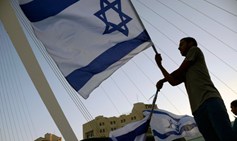
A Red Alert for Israeli Democracy
Written By: Yohanan Plesner
In the midst of Operation Protective Edge, IDI President Yohanan Plesner warns of the dangers of racism, incitement, and stifling of free speech and asserts that it is essential to internalize a substantive democratic culture.

Operation Protective Edge and International Law
Written By: Yohanan Plesner , Prof. Mordechai Kremnitzer, Prof. Amichai Cohen, Adv. Eli Bahar
As Operation Protective Edge enters its second week, IDI experts outline the legal basic concepts involved in asymmetrical warfare and the boundaries of permissible action according to standard interpretations of existing international law.
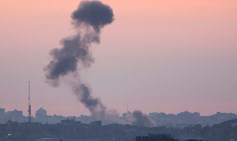
The Role of a Legal Advisor during Times of Combat
Written By: Adv. Eli Bahar
IDI Researcher Attorney Eli Bahar discusses the central role that members of Israel's system of legal counsel play in formulating the rules of what is permissible during warfare in real time, during the fighting, in order to ensure that Israel's citizens will not be ashamed of themselves after the fighting ceases.

The "Anti-Pardon" Bill: Laws are not a Substitute for a Backbone
Written By: Dr. Amir Fuchs
In an article in <em>The Times of Israel</em>, Attorney Amir Fuchs argues that legislation that would give judges the authority to sentence murderers to life in prison with no possibility of pardon is misguided and will not prevent terrorists from being released in future prisoner exchanges.
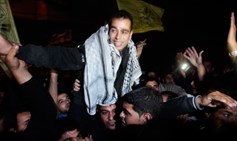
Releasing Terrorists: An Insult to the Criminal Justice System
Written By: Dr. Amir Fuchs
In an article in <em>Haaretz</em>, attorney Amir Fuchs explains why he believes the release of convicted terrorists as part of prisoner release deals or as part of diplomatic negotiations degrades Israel's criminal justice system.

Elections in the Shadow of War (2012)
Israel's launch of Operation "Pillar of Defense" just before the elections for the 19th Knesset is reminiscent of the launch of "Operation Cast Lead" before the elections of 2009. Should the elections be postponed? Dr. Dana Blander discusses elections during times of war, in Israel and abroad, from an historical-legal perspective.

The Status of the West Bank Settlements Under International Law
Written By: Ido Rosenzweig, Frances Raday
Prof. Frances Raday and Adv. Ido Rosenzweig analyze the conclusion of the Israeli government's committee on the status of Israeli building in the West Bank, which was headed by former Justice Edmond Levy, and raise questions based on International Law and United Nations resolutions.

The Security Check Appeal: Another Extension of the Judgment
Written By: Eli Bachar
Eli Bahar, former legal adviser to the General Security Service, analyzes the Israeli Supreme Court’s decision to postpone ruling on a petition requesting the elimination of ethnic security checks in Israeli airports.

Crossing the Syrian-Israeli Border: Acts of War or Disturbances?
Written By: Prof. Yuval Shany
The violent incidents that took place on the Israeli-Syrian border in June 2011 raise the question of how the Israel Defense Forces should deal with violent events that resemble disturbances while at the same time affecting important Israeli security interests. IDI Senior Fellow Prof. Yuval Shany offers his analysis of the Israeli response to these events.
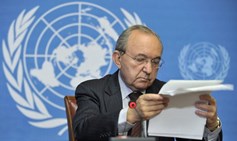
The Goldstone Retraction: Better Late than Never, and an Opportunity to Reconsider
Written By: Prof. Yuval Shany
Judge Richard Goldstone’s retraction of his commission's finding that Israeli actions in Gaza during Operation Cast Lead deliberately targeted civilians righted a historical injustice. But did the actions of the State of Israel contribute to the false impression received by the Goldstone Commission? In this op-ed, IDI Senior Fellow Prof. Yuval Shany explores the question of whether the Israeli government should also search its soul and consider participation in future international commissions of inquiry.

The Counter-Terrorism Memorandum Bill
Written By: Prof. Mordechai Kremnitzer, Prof. Yuval Shany, Terror and Democracy Research Team
An analysis of the proposed comprehensive counter-terrorism bill that was prepared by IDI's Terrorism and Democracy research team and submitted to the Ministry of Justice.

Cyber-Terrorism
Written By: Karin Tamar Schafferman
An abridged version of a Hebrew article on cyber-terrorism that was originally published in IDI's Hebrew Parliament on-line journal.

Anti-Terrorism Legislation in Britain and the U.S. after 9/11
Written By: Yogev Tuval
Democratic countries around the world are struggling to effectively fight terror without compromising basic human rights and freedoms – the essential democratic values. In this article from IDI's Hebrew online journal Parliament, IDI's Yogev Tuval presents an analysis and comparison of post-9/11 anti-terrorism legislation in the United States and Britain, and explains how certain laws threaten democracy.

Doves and Hawks in Israeli Society: Stances on National Security
Written By: Yael Hadar, Naomi Himeyn-Raisch, Anna Knafelman
How central is the security question among the general Israeli public, and to what extent is it central in party eyes? What are the estimated percentages of citizens in Israel who associate themselves with the right and left camps? This article explores these questions and associates Israel's right and left political camps with their perceptions of security-related issues.

Military-Style Policing is Not the Same as Tough on Crime
Written By: Dr. Yael Litmanovitz, Adv. Mirit Lavi
While the police shooting in Tarabin is still under investigation, the events leading up to the shooting reflect a systemic failure in the police's approach to combatting crime in Arab society, and raise concerns about politicization of the police.

The “People’s Army”?
Written By: Dr. Asaf Malchi
This article presents the main milestones in the recurring attempts to put a satisfactory arrangement for the deferment of military service for yeshiva students in place. In doing so, it surfaces the changes that have occurred over time in the constitutional, legal, and public responses and attitudes on this issue.

The Voice of Our Brothers' Blood
Written By: Prof. Yedidia Z. Stern
The whole world must be the arena of the war against antisemitism and the Jewish nation-state must serve as the supreme commander in this universal conflict.
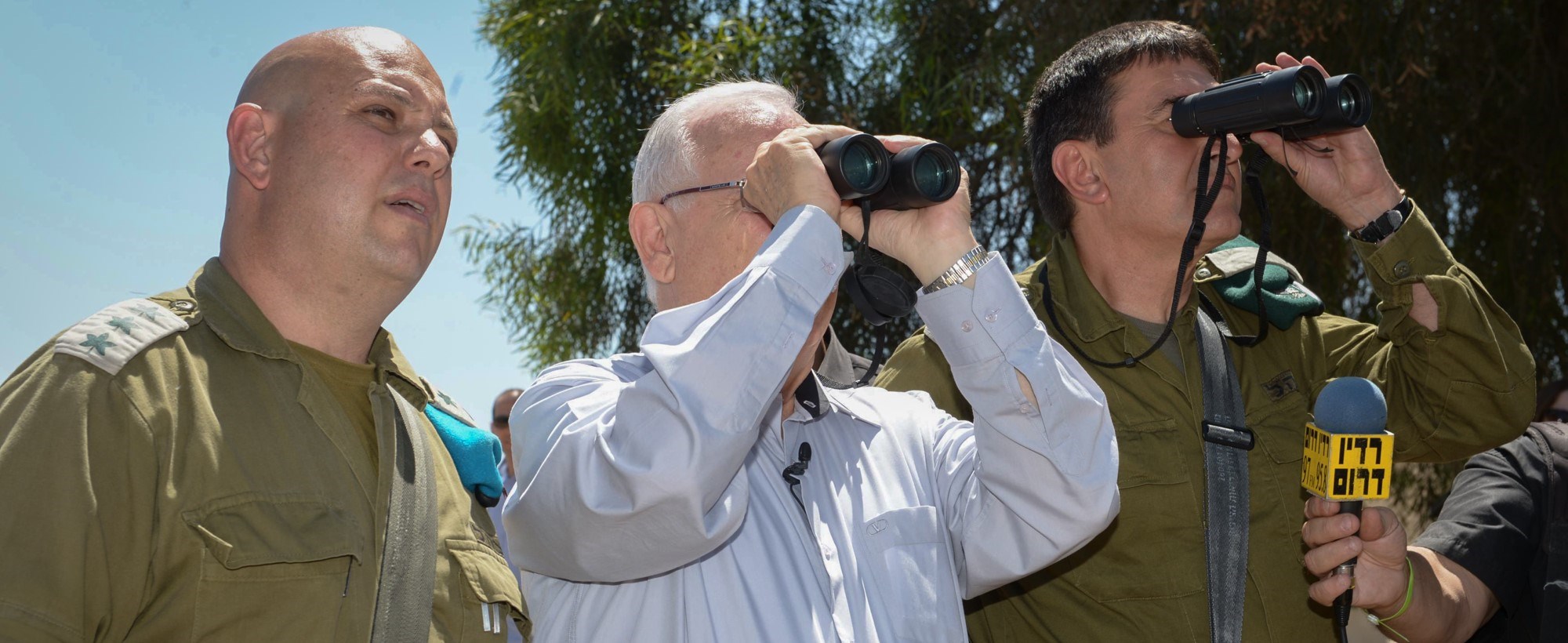
Three Years since Operation Protective Edge, Israeli Public Defines Israel’s Security Situation as Good
Latest Peace Index: More than half of Jewish and Arab Israelis see high chances of war between Hamas and Israel in coming year

Security and Democracy in the Modern Era
Written By: Prof. Yuval Shany
Israel has been in a state of emergency since 1948. But the nature of the threat has changed over-time—from full-scale military invasions to isolated airplane hijackings, from suicide bombings to missile attacks, and most recently, cyber and lone wolf terrorism.
These ever-evolving threats necessitate new responses and strategies.


